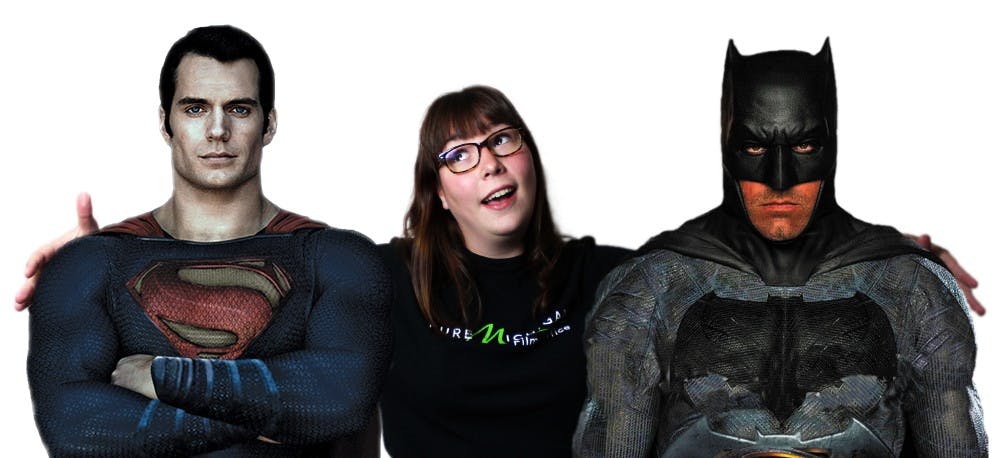COLUMN: Michigan Film Office boosts the industry this state needs and deserves
When “Batman v Superman: Dawn of Justice” premieres March 25, I will be able to say I was fortunate enough to see how it was made by working on-set as an extra.
Unfortunately, it was one of the last movies that received support from the state before our legislators gutted the Michigan Film Office.
We need to support the film industry in Michigan. It provides a unique kind of economic development for our state and helps support students, like me, who want to have a career in broadcasting and cinematic arts.
Being on the set of a big film is a great learning experience that would benefit every BCA or theatre student. Because of waning support for the film office, students will likely have fewer opportunities to have those experiences. It also creates jobs in the communities those projects film in.
Not supporting the film office is a huge mistake.
In June, Michigan legislators voted for House Bill 4122, which discontinues tax credits and incentives to film productions. My first thought was, “there goes my chance of getting a job in Michigan.”
The film office used to receive its funding through the Michigan Business Tax, which was repealed by our elected officials to help “support” Michigan businesses, meaning every business received a huge tax break. When the state stopped collecting that tax, the film office was funded by an annual $50 million allocation from legislators.
Then our elected officials decided to take that support away, too.
Full disclosure: I’m now an unpaid intern at the Michigan Film Office. The office is not closing, but because of House Bill 4122, it is not in the position to accept any new projects. This also has me rethinking whether I can have a career in my home state.
In October, I had the opportunity to be an extra in “Batman v. Superman: Dawn of Justice.” I played the role of a caterer at a private party Bruce Wayne and Clark Kent attended.
Unfortunately, I can’t tell you any more than that due to a binding non-disclosure agreement.
I can tell you this: During my three days on the set I learned things about moviemaking that helped me realize it is what I truly want to do. It was a wake up call.
About 1,000 people were there as extras. We were paid minimum wage and time and a half for non-speaking roles. According to the MFO website the film is expected “to hire 406 Michigan workers, with a full time equivalent of 426 jobs, plus an additional 6,000 man/days of extra work.”
I worked 15 hours a day, but I was so thrilled to be on the set, and surrounded by so many talented people, that the long hours did not affect me. Not only did I get to stand by Henry Cavill while he played Superman’s alter ego Clark Kent, I quite literally ran into Ben Affleck as Bruce Wayne.
As we were resetting a shot, I was walking back to my mark. Affleck came rushing round the corner. I had nowhere to go because there were lights in the way.
“Excuse me,” he said.
I replied, “No, excuse me!” and quickly moved out of the way as we bumped shoulders. He was a little shorter than me.
It was fun to see Batman and Superman up close, but my favorite part of the experience was being on set watching the professionals work. Everyone on set had an important role and watching them work together was amazing.
I talked to production sound mixer Michael McGee between takes. He gave me great advice about working in the movie business. He also told me to work hard, take chances, and never give up.
I took his advice and introduced myself to director Zack Snyder on the last day of filming. I told him that I really enjoyed being on set and as a film student I loved watching him work.
Snyder told me he was excited for me. I gave him my business card, told him to check out my short films and give me some feedback.
I still haven’t heard from him, but I’m proud I introduced myself.
I would have not had this opportunity if it wasn’t for the MFO and the incentives the state provided to filmmakers. Now, the goal is to let students know there are still jobs in this industry. Making movies creates many jobs and allows people to stay in Michigan.
Michigan Film Office Director Jenell Leonard told me two reason why filmmakers and Michigan are a good match: location and talent.
Michigan needs film, movie makers need great talent and great locations.
It shouldn’t have to take a superhero to save the day and restore support to the film office. But unless something happens to restore those incentives, I might see my employment prospects in Michigan slowly fade to black.







